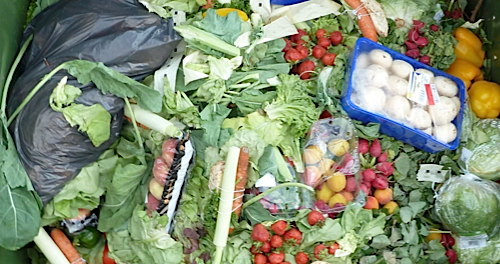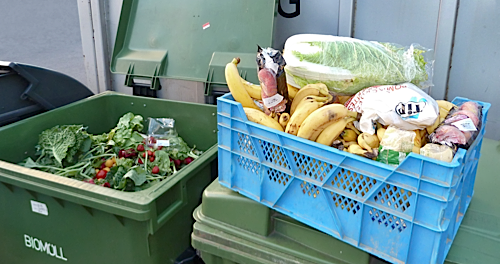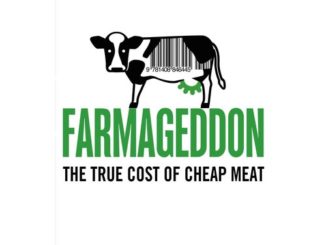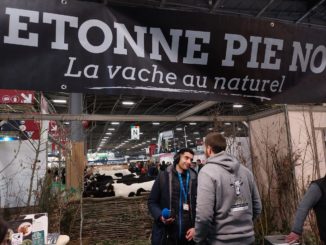
The French National Assembly has voted unanimously in favour of new legislation to outlaw food waste. Headline measures include a requirement for all supermarkets over 400 square metres to donate food to bona fide charitable organisations rather than dump it when it goes out of date. It will also ban the use of bleach to render dumped food inedible.
After the National Assembly’s May 21 vote, it will be the French Senate’s turn to discuss the current parliamentary text. It enjoys broad support across the political spectrum and is widely expected to be passed by the end of the year. The package under discussion is the result of an extensive investigation of food waste by former food industry minister Guillaume Garot, published in April [in French].
Garot works on the basis that food is not simply merchandise like any other. It requires positive measures to keep wholesome food out of the waste stream. Unsold food should be given away rather than thrown away, or converted into animal food, agricultural compost or used in energy recovery. Garot’s report brings a number of factors into sharp relief: the French population throws away between 20 and 30 kg of food per person every year, while for the complete supply chain from farm to fork the equivalent of 90kg to 140kg per French citizen is lost or wasted every year.
At a global level, an estimated one third of food production is either lost or wasted every year. This also makes food waste the third largest single source of greenhouse gases after China and the US.
Garot sets out to use his findings to frame a new policy to tackle food waste, “…making a choice to produce and consume differently, to defend ethical, economic and ecological values.” The government is setting out to centralise public educational campaigns, develop educational resources as well as defining indicators and measures of performance. As part of setting best practice and encouraging innovation, the French government would use the law to set up a thousand public sector service agreements for schools, local government, associations and businesses to promote best practice in the supply chain and training.

A new departure comes with Garot’s plans for a local focus: by harnessing local initiatives, the French deputy hopes to encourage a new development model that will generate a new lease of life for local economies. An inter-ministerial committee will take charge of countering food waste and France will promote tackling food waste at a European level.
In practice, some parts of the French food supply chain are better adapted than others to adopt the spirit of the current proposals. The powerful retail sector argues that it is already actively cutting waste, disputing the 11% food waste figure that the government attributes to it.
Controversial supermarket chief Michel-Edouard Leclerc let fly on his blog [in French] with the customary mix of bluster and bravado. He challenged the public sector caterers to meet the same requirements as the retailers, neatly sidestepping the fact that these organisations are structured to meet very different operational requirements. Delivering cooked food on a plate is not comparable with running a supermarket, where packaged food can be piled up in trollies.
Leclerc is not wrong to point out that there are real food safety issues for certain categories of food (eg raw meat; cooked meats). But both retail and food service businesses are (or should be) robustly structured to manage the widely differing risk sets. However, voluntary associations can sometimes lack the skills, structures and resources to manage certain food handling risks.
He also brings a scale to the situation, by making the point that Leclerc supermarkets currently give away 24,000 tonnes of food a year, a quarter of which goes to food banks alone. France’s third largest supermarket chain already donates 460 tonnes of short shelf life food every week, so at any time during the year, there must be thousands of tonnes of consumable unsold food criss-crossing the country in search of a final resting place. Leclerc is comfortable talking about the tip of his commercial iceberg, but he is not the only French food retailer, far from it.
The supermarket boss is careful to emphasise that 95% of his members’ stores already have agreements with charities and voluntary associations to donate unsold food: indeed 50% of them supply three or more good causes. In the short term, he is right to say that passing a law will not create new voluntary associations in places where at present there are none.
Nor will every voluntary organisation have the resources required to transport and store every category of food that retailers have on their hands as the sell-by date approaches. But this, of course, raises the far more complex question of which product categories earn retailers like Leclerc the biggest margins.
All Arc2020 features on Food Waste





